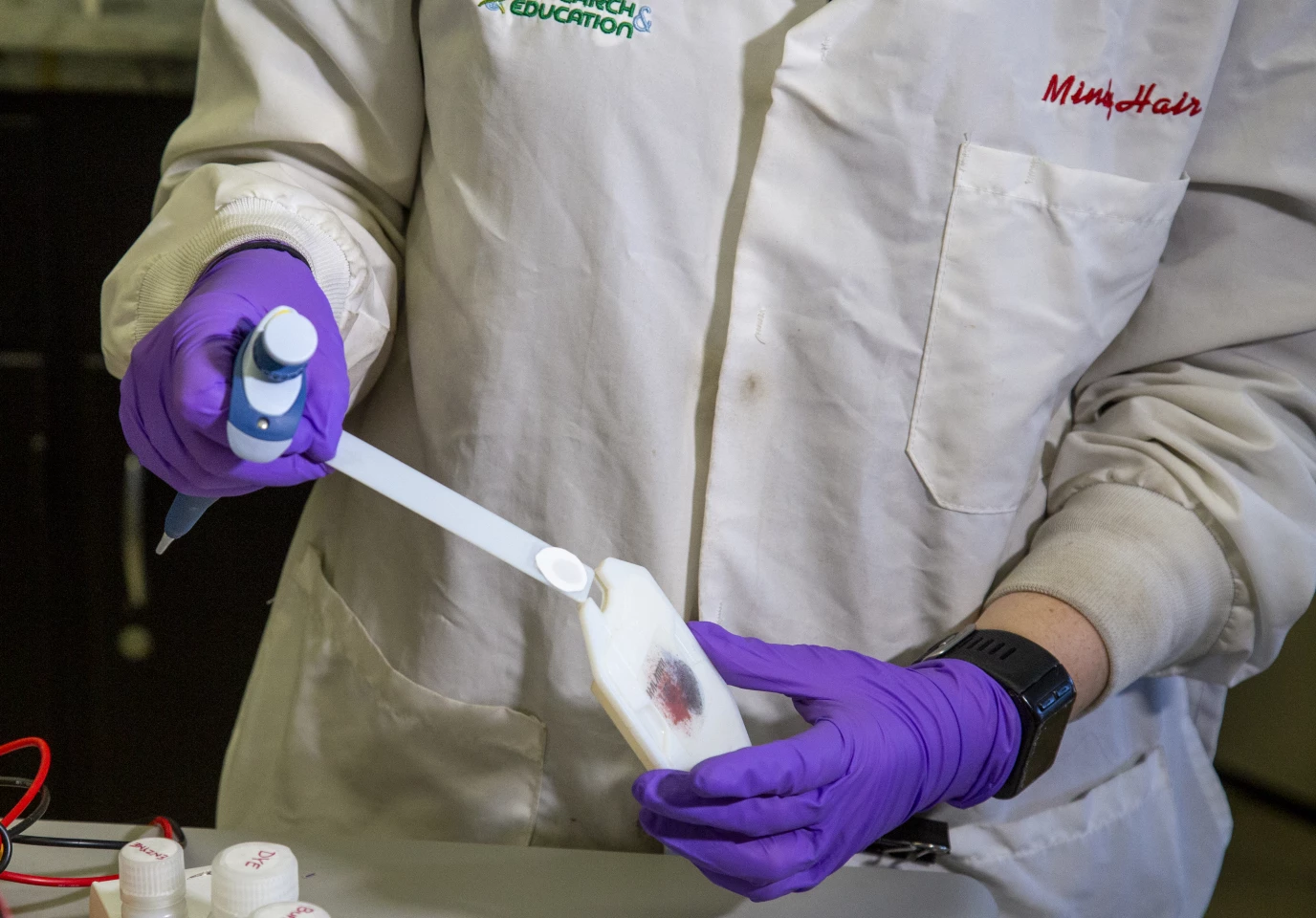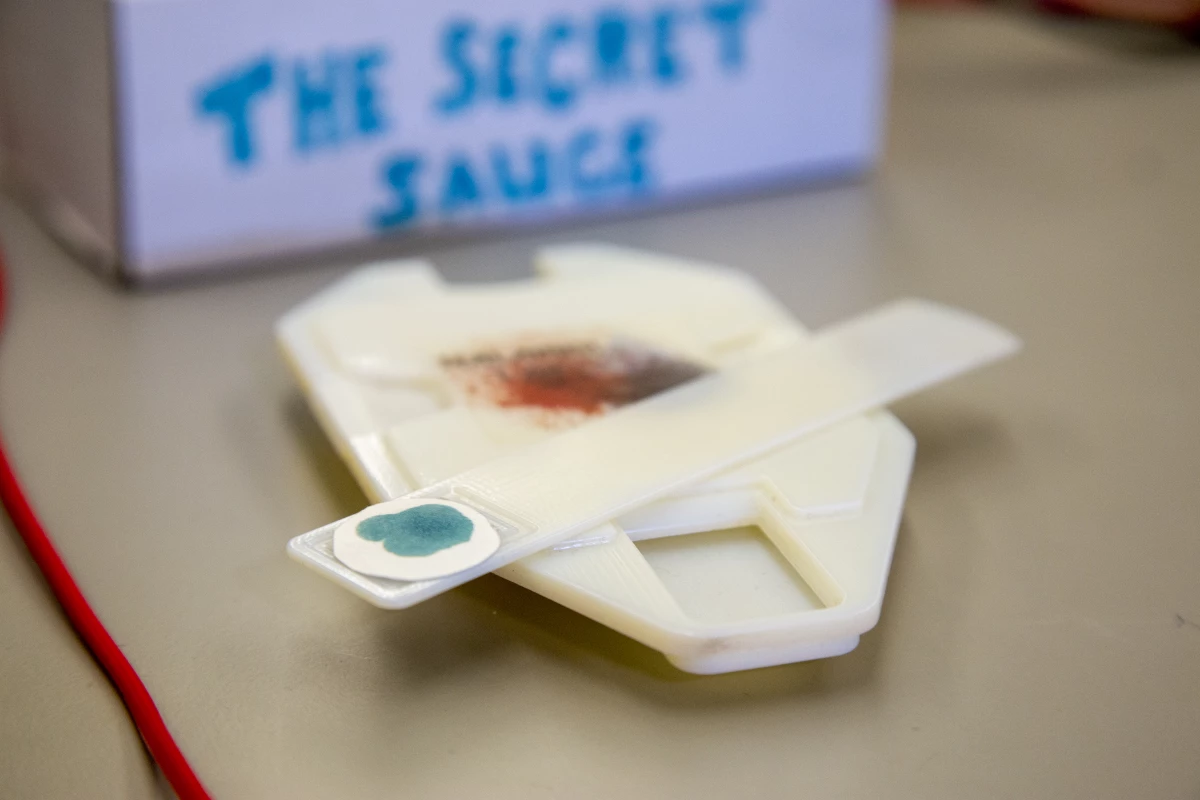Although breathalyzers have been used to check drivers' blood alcohol levels for decades now, the things do have their drawbacks. In the near future, however, police officers and others may get better results using a simple strip-type test kit.
Breathalyzers work by measuring the amount of ethanol in a person's breath, which usually correlates to the amount of alcohol circulating in their bloodstream.
That said, readings can be thrown off by the use of mouthwash or breath fresheners, or by acetone in the breath of diabetics. Additionally, users have to blow into a breathalyzer for 10 full seconds, meaning that the devices can't be used on people who are unconscious or uncooperative.
With these limitations in mind, scientists from New York state's University at Albany are instead developing test strips that are simply applied to a suspect's skin.
Once such a strip is in place, enzymes within it react with any ethanol that's present in the person's sweat, causing a colored spot to appear on the strip. The darker that color, the greater the amount of alcohol in the blood. Plans call for the development of a smartphone app, which will precisely match given darkness levels to specific blood alcohol content (BAC) numbers.

In a test of the technology, 26 volunteers consumed several shots of vodka, in order to obtain a .08-percent BAC. More than 100 readings were performed on those people over the following few hours, utilizing both a commercial breathalyzer and the test strips. It was found that there was "a strong correlation" between the readings obtained via the two methods.
"There’s a direct relationship between ethanol in blood and sweat," says Asst. Prof. Jan Halámek, leader of the study. "Through our research, we have shown that as an individual consumes alcoholic beverages, their blood alcohol levels increase at a similar pace to sweat alcohol levels. This finding could have significant implications for law enforcement to assess and prevent drunk driving."
The research is described in a paper that was recently published in the journal Analytical Chemistry.
Source: University at Albany





